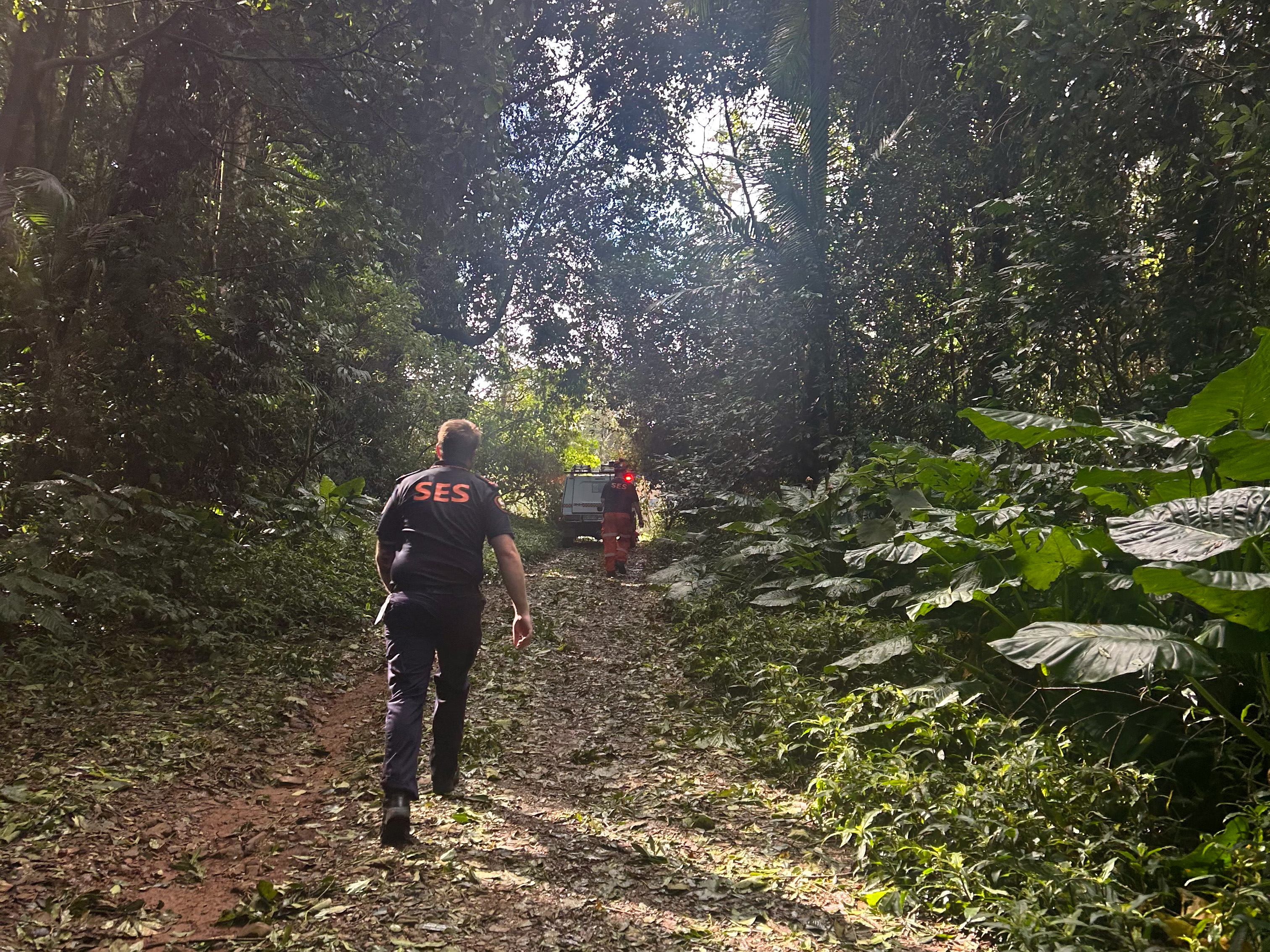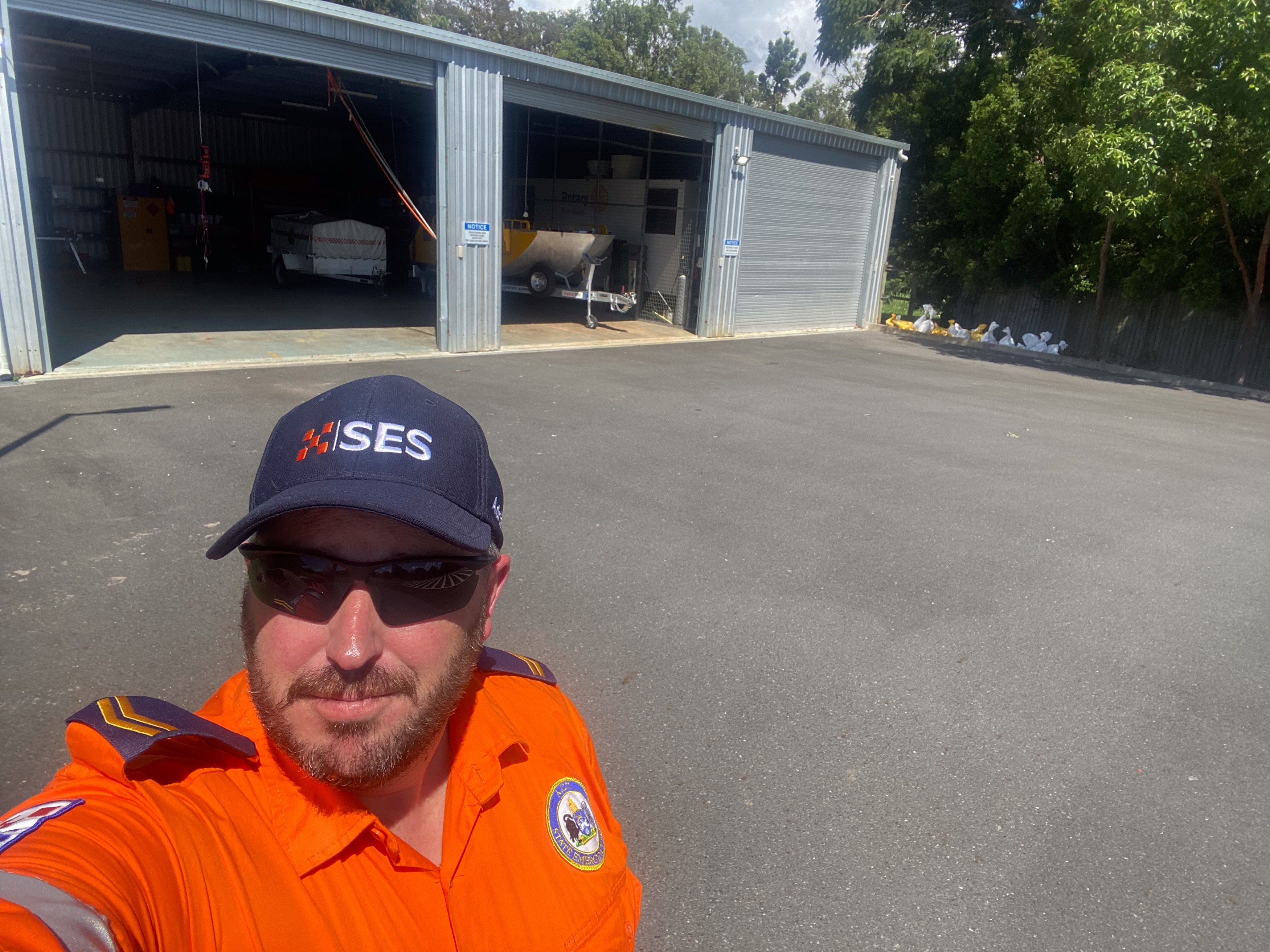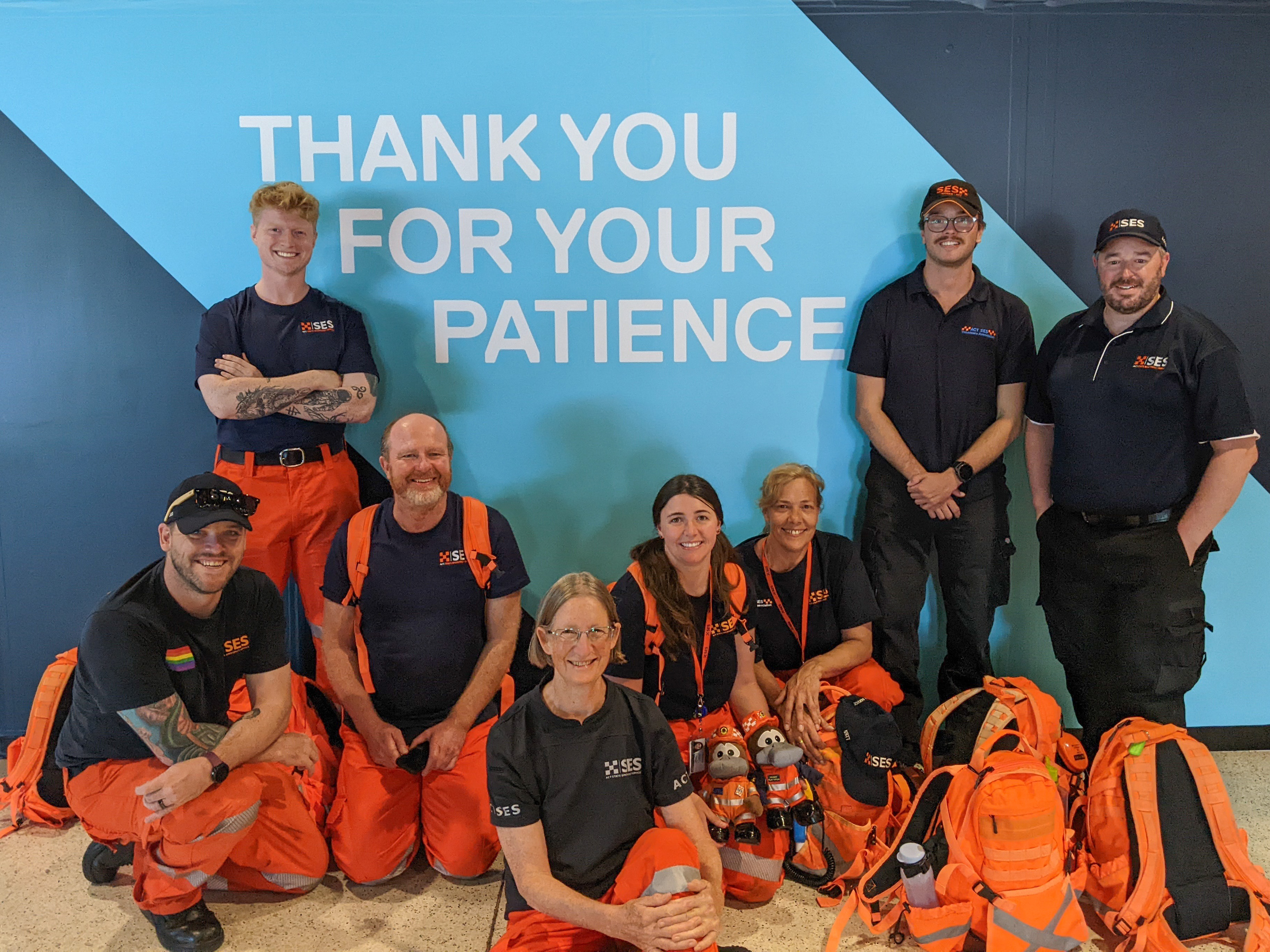After many days of anxious build-up and catastrophic predictions, the overall impact of ex-Tropical Cyclone Alfred was fortunately less disastrous than originally forecast.
However, this was a cold comfort for the many communities in southern Queensland and northern New South Wales, whose suburbs and properties were left flood-affected and damaged in the wake of this severe weather event.
The clean-up job was going to be long and difficult, and local services put out the call for help from interstate.
The ACT State Emergency Service (ACTSES) and the ACT Rural Fire Service immediately responded.
In total, nearly 80 volunteers and staff from the two services flew to Queensland to assist in the aftermath of cyclone. Among them was Adrian, a Team Leader with the ACTSES Woden Unit.
“We sign up to help people, and whether it's in Canberra or Queensland, it doesn't really make a difference,” says Adrian.
“Volunteers in the ACTSES also appreciate the opportunity to put their skills to good use, and during a deployment you get to do this over a number of days, and a number of shifts.
“This recent deployment to the cyclone-affected areas of Queensland was an experience that will probably stay with people for a very long time.”
Adrian is no stranger to disaster zones - with 25 years of service already under his belt, he has previously been on several interstate deployments, on top of the regular assistance he provides to the Canberra community, whenever a severe storm impacts the territory.
During his time with the Woden Unit, Adrian has served in several leadership roles, including that of Commander, which he stood down from in 2023, after eight years at the helm.
Since joining the ACTSES as an 18-year-old in 1999, after his friends told him to ‘jump in and give it a go’, Adrian has found his volunteering experience to be invaluable.
“Not only was I able to help my community, but it also gave me the opportunity to learn new skills and trades, and that training has actually helped me in my paid roles in life,” says Adrian.
“Especially the leadership training and experiences, that has really given me a lot of confidence.”
This experience was called upon in Queensland, from the moment the units touched down in the flood-affected areas they faced some immediate challenges.
“When we first arrived there was some nervous excitement, but that was largely because of the unknown,” says Adrian.
“We don't know what we're going to face, we don't know what exactly we're going to do, we don't even know where we're going to sleep for the night.
“We are also dealing with people who may have lost their homes or possessions, and they are understandably quite upset.
“There's a level of empathy that we try to provide, but we also want to offer some reassurance and comfort - we’re here, we’re trained and we’re ready to help.”
Help is what the ACTSES does best, and over three intense days of operation, Adrian and his colleagues provided critical support to the local communities.
The tasks ranged from cutting fallen trees off houses and roads, to conducting welfare checks on residents, and making temporary repairs to damaged roofs.
In one particularly high-stakes operation, the team worked to clear debris from an access road leading to vital communication towers, ensuring that the Brisbane airport could continue to operate without disruption.
"There was a threat that if power couldn't be restored to the comms towers, it would affect the airport and have wide-ranging consequences," says Adrian.
“For the more general jobs, we did a lot of work at heights, putting tarps on roofs, so at least people’s houses would be dry for the night.”
While providing assistance is always a core mission, deployments also provide invaluable hands-on learning opportunities for ACTSES members, especially for newer recruits, who may not have had many chances to apply their skills in the field.
Volunteers make personal sacrifices to go on deployments, and rely on support from family, friends and employers, as they take time out of their normal lives to assist disaster-affected communities.
But Adrian says, while it can be hard shuffling life around, the gratitude shown by the local communities in Queensland left a lasting impression on those who made the trip.
"It's always nice to be thanked by upper management and heads of services, but I think it's even better when our crews are at a place like a coffee shop while on deployment, and someone comes up to them and says, 'Oh, thanks. You know, thanks for coming here and helping.’
“Some people will even jump in and actually pay for the volunteers’ coffees.
“It's those little deeds and kind words of thanks that a lot of volunteers really appreciate.
“It shows how the rest of the country is coming together to help out, or thank those people who are assisting, and that’s a really nice feeling."


